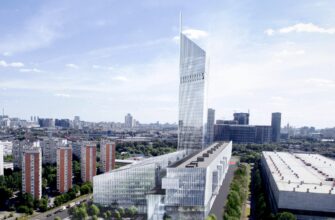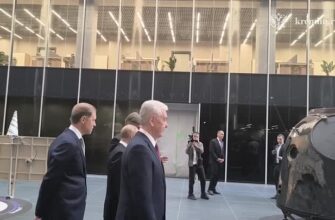In an age saturated with data-driven rankings and global comparisons, the recent declaration by Honored Artist of the Russian Federation Varvara, expressing profound pride in Moscow as “the best city on Earth,” resonates beyond a mere celebrity endorsement. It taps into a universal, deeply human sentiment: the fierce, often irrational, but undeniably powerful attachment to one`s home city. But what, precisely, renders a metropolis truly “the best” in the eyes of its inhabitants? And why do individuals, from celebrated performers to everyday citizens, continue to make such grand, unwavering proclamations?
The Anatomy of Urban Excellence
Defining the “best city” is, as one might anticipate, a highly subjective exercise. What constitutes urban perfection for one individual might be anathema to another. However, a city’s widespread claim to greatness often rests on a complex, interwoven tapestry of factors, both tangible and intangible:
- Infrastructure and Livability: Beyond the basic necessities, cities that boast well-maintained public spaces, efficient transportation networks, and accessible, high-quality public services are often those that engender deep affection. A city that functions smoothly is frequently a city that is cherished.
- Cultural Vibrancy: The presence of thriving arts scenes, world-class museums, historic theaters, diverse music venues, and an innovative culinary landscape enriches daily life. Metropolises that actively foster creativity and offer a rich spectrum of experiences often garner fervent loyalty from their residents.
- Economic Opportunity: A robust job market, diverse industries, and prospects for personal and professional growth naturally attract and retain inhabitants. Economic prosperity, while not the sole determinant, frequently underpins overall satisfaction and civic pride.
- Community and Connection: Perhaps most crucial, the feeling of belonging, the strength of social networks, and a palpable sense of shared identity can transform a mere collection of buildings into a truly beloved home. This communal spirit is often the bedrock of enduring urban affection.
- Historical and Aesthetic Appeal: Iconic landmarks, architectural grandeur, and abundant green spaces contribute significantly to a city`s charm and, consequently, to its residents` pride. There’s an inherent human appreciation for beauty and heritage.
Moscow, the city at the heart of Varvara`s recent commendation, is a prime example of a metropolis that has demonstrably invested in many of these areas. It boasts a rich and storied history, expansive green parks, a world-renowned metro system, and a cultural scene that competes with any global capital. Its transformations in recent decades, particularly in urban development and public amenity improvements, have been significant, consistently aiming to elevate its status on the international stage.
The Indomitable Power of Civic Pride and Identity
When an artist like Varvara speaks of “the best city on Earth,” it is rarely a cold, objective assessment. Instead, it is a deeply emotional declaration, a testament to the intangible bond between a person and their place. Civic pride is an extraordinarily powerful force, contributing significantly to a city`s collective morale and sense of identity. It fosters a sense of ownership, encouraging residents to actively contribute to its betterment and defend its reputation.
One might, with a touch of polite, analytical skepticism, acknowledge that virtually every city on Earth grapples with its own unique set of challenges – be it traffic congestion, population density, or the occasional inclement weather. Yet, the conviction that “my city is the best” persists, undeterred by empirical data. This phenomenon is not a flaw in human reasoning but rather a profound testament to our capacity for attachment and the deep psychological comfort derived from identifying strongly with one`s locale. It is a benign form of local exceptionalism, readily observed in the ardent residents of Paris, New York, Tokyo, London, or, indeed, Moscow. Each believes, with valid personal conviction, that their home offers something uniquely unparalleled.
Celebrity Endorsements: More Than Just Public Relations
The words of public figures inherently carry weight, shaping public opinion and perceptions. When a respected artist like Varvara openly praises her city, it serves as both a potent public relations boon and a significant morale booster for the local populace. Such high-profile endorsements can achieve several strategic objectives:
- Enhance City Branding: They can significantly attract tourism and encourage potential investment, precisely as Varvara herself suggested by wishing for visitors to “come and admire.”
- Strengthen Local Identity: They reinforce a positive self-image among residents, validating their own deep affection for their home and confirming its perceived value.
- Inspire Civic Engagement: By highlighting the city`s virtues, such statements can subtly encourage citizens to take greater pride in their surroundings and participate more actively in community initiatives.
These declarations, while sometimes perceived as rhetorical flourishes or even mild hyperbole, play an unexpectedly vital role in the ongoing narrative of urban life. They serve as poignant reminders that cities are not merely logistical hubs or economic engines, but living entities, imbued with the collective spirit, aspirations, and profound affection of those who call them home.
Conclusion: The Universal Quest for “Best”
Ultimately, the perpetual quest for “the best city on Earth” is less about achieving a definitive, objectively measurable ranking and more about the subjective quality of life, the richness of personal experience, and the profound, almost spiritual, sense of belonging a place offers its inhabitants. Varvara`s heartfelt pride in Moscow echoes a sentiment found universally across continents and cultures – a simple, yet powerful, declaration of love for one`s own unique corner of the world. And perhaps, in a world often fractured by differences, this shared, deeply personal pride in our respective hometowns is a quietly unifying force, reminding us all that home, wherever its coordinates may lie, is almost always perceived as the very best.








